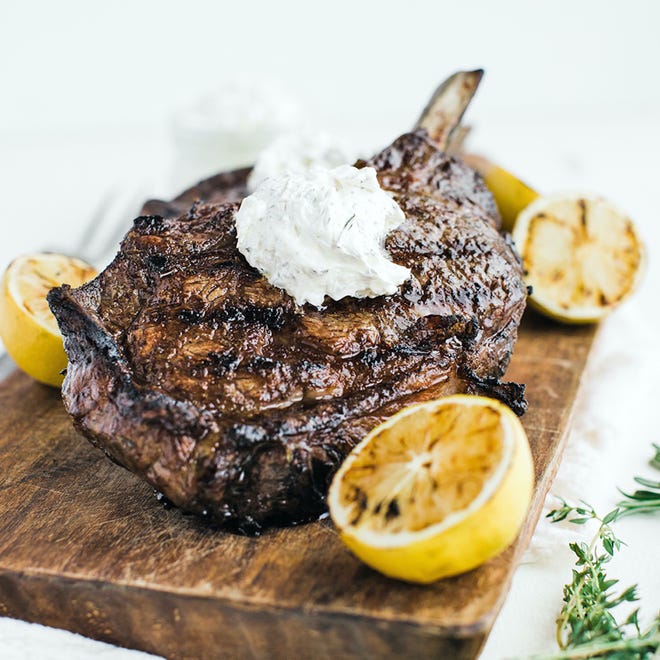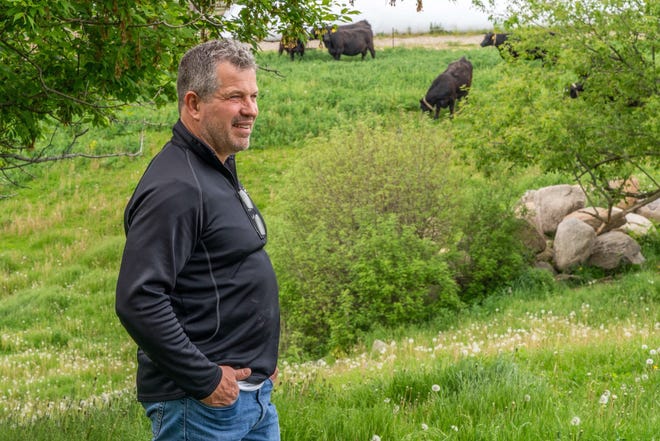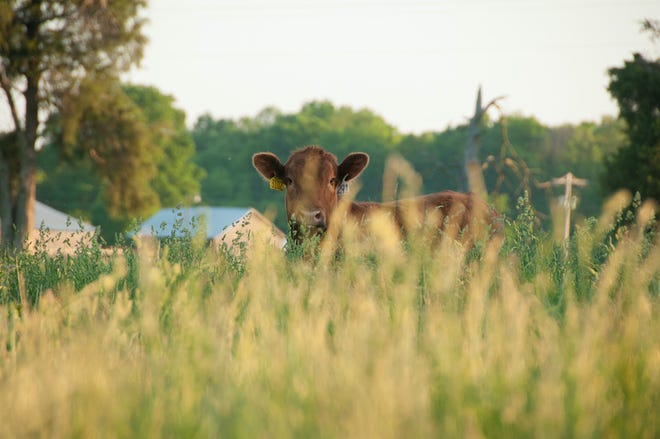 Wisconsin may be America’s Dairyland, but there’s another bovine-related food abundant here: beef. In fact, the number of beef farms here is growing even as the number of dairy farms is declining. The state has nearly 14,000 beef farmers,
Wisconsin may be America’s Dairyland, but there’s another bovine-related food abundant here: beef. In fact, the number of beef farms here is growing even as the number of dairy farms is declining. The state has nearly 14,000 beef farmers,
“Beef can be a staple for any meal enjoyed year-round, but summer months are special for Wisconsin residents who want to spend more time outdoors with family and friends,” said Kaitlyn Riley, communications director with the Wisconsin Beef Council.
Beef farming grows in state
Unlike small dairy farms, small beef farms are proliferating in Wisconsin. The number of beef farms in the state grew about 7%, from about 13,000 to 14,000, from 2012 to 2017, the latest figures available from the U.S. Department of Agriculture.
In sheer numbers, there were 310,000 cattle to produce beef in the Dairy State in January, according to the USDA. Nearly all of Wisconsin beef farms had fewer than 50 head of cattle.
Just nine Wisconsin farms had 500 to 999 beef cattle, and only one was listed as having more than that, according to 2017 figures, the latest available.
The state’s beef trends are apparently the opposite of what’s happening with dairy farms and different from other states.
“While it can be difficult to pinpoint all contributing factors, we do know that dairy farmers diversifying their farms or converting to beef production certainly is playing a part in Wisconsin growing their beef herd,” said Jeff Swenson, livestock and meat specialist at the Wisconsin Department of Agriculture, Trade and Consumer Protection, in an email provided by the Wisconsin Beef Council.
Many of the state’s smaller dairy farms have been drying up, with remaining ones getting larger. Wisconsin has 1.26 million head of dairy cows as of the start of 2021, about four times the number of beef cattle. Yet, only 6,800 dairy farms remain, about half the number of beef farms.
Another stark contrast is that less than half of the remaining dairy farms have fewer than 50 cows, according to Riley at the Wisconsin Beef Council and census data.
The number of cattle in Wisconsin has grown consistently in the past decade, even as the number has decreased in many states, Swenson wrote in the email.

Beef is big in summer
The increase in local beef farms is good news for Wisconsin’s beef lovers. In summer, ground beef and steaks rule.
One of Wisconsin’s beef farmers is Doug Ney (rhymes with pie), a fifth-generation farmer and owner of Ney’s Premium Meats in Hartford, formerly known as Ney’s Big Sky. Ney, who raises Angus and Angus-cross cattle, has built a following for his bone-in rib-eye, filet mignon and custom burger grinds.
Ney’s free-range beef is entirely sourced and processed in Wisconsin, from Ney’s friends, uncles and other family members.
One notable selection is their prime rib burger, using ground rib-eye. The burgers come three patties to a 1-pound package for $9 at neysbigsky.com. The burger is about 92% lean, Ney said; burgers typically can be 20% or 30% fat.
Ney’s also grinds its custom Bloody Mary burger, corned beef burger and whiskey peppercorn burger, to name a few others. The uniform size and thickness of pre-formed patties can help with even cooking on the grill.
Ney’s meats are sold at the South Shore and Brookfield farmers markets plus stores including Metcalfe’s Market in Wauwatosa and Madison, Woodlake Market in Kohler, Good Harvest Market in Waukesha and The Organic Market in Slinger.

For Strauss Brand meats based in Franklin, ground beef is the bestseller during grilling season.
“Ground beef — hard to beat a burger on those hot days. Rib-eye steaks and strip steaks are also popular choices this time of year,” said Devin Kulla, marketing director at Strauss.
At home, Kulla said, he enjoys grilling a marinated flank or skirt steak for tacos.
“A little brown sugar in the marinade helps get a nice sear on the outside,” he said.
Strauss gets about 15% of its beef from Wisconsin producers, with the remaining primarily coming from the rest of the Upper Midwest and South Dakota.
“Our cattle are born and raised in the USA, where they are always free to roam on pasture. Our ranchers utilize pasture management practices like rotational grazing that helps restore our soil, therefore reducing erosion and improving water quality,” Kulla said.
Strauss beef is all grass fed with no antibiotics or added hormones, he said. Strauss beef is available at Pick ‘n Save, some Piggly Wiggly, Meijer, Woodman’s Market and Sendik’s Food Market.
Wisconsin Meadows is another option for pasture-raised beef. A co-op based in Viroqua, Meadows’ beef cattle are rotationally grazed on Wisconsin family farms across the state, according to wisconsinmeadows.com. Its cows are treated humanely, born and naturally raised without synthetic growth hormones or antibiotics.
The cattle are never put in feedlots, and calves are left with their mothers to learn grazing and social behaviors. Wisconsin Meadows beef can be found at its website and throughout the Midwest in stores including Albrecht’s Delafield Market, Outpost Natural Foods, Metcalfe’s Market, Riverwest Co-op, Health Hut and Glenn’s Market in Watertown.
Another farmer co-op, Organic Prairie, based in La Farge along with Organic Valley, provides more beef options, available at Health Hut, Woodman’s Market, Whole Foods, Outpost Natural Foods, Woodlake Market, Metcalfe’s Market and Sendik’s Food Market.
At Sendik’s Food Market, with 17 locations around southeastern Wisconsin, steaks are the “big focus” for Father’s Day weekend, according to Brian Schroeder, meat and seafood director.
He predicted increased demand on Father’s Day and through summer for rib-eyes, T-bones, filets, porterhouse and New York strip steaks. Also popular are marinated beef tenderloin kebabs, gourmet burgers and marinated beef skewers.
The stores carry mostly USDA choice or higher-grade beef, including American Wagyu beef, grass-fed and grass-finished beef.
Source: jsonline.com









